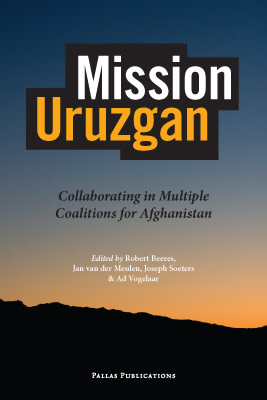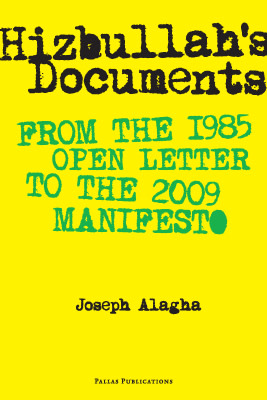From the praise for The Shifts in Hizbullahs Ideology:|“Alahga successfully traces the major transformations of Hizballah’s identity over the past decades by delineating its shift from a resistance identity to a project identity. […]. Alagha’s narrative successfully captures that gradual transformation of Hizballah from a “resistance group with a resistance identity to a political party with an Islamic project identity grounded in dominant interests.” Alagha’s coverage of the topic is more than adequate. […] What Alagha offers […] is a comprehensive assessment of all of the identity transformations within Hizballah as a single tradition.“ -- Mouannes Hojairi
Journal of Palestine Studies, Vol. 41, No. 2 (Winter 2012), pp. 125-127 (University of California Press)|"This clearly written, and well argued book [is] a contribution to Middle Eastern Politics, to the relations between Iran and Shiite communities in the World, to the literature on suicide bombing, and to transnational Islam… Select chapters could be used for teaching graduate and undergraduate courses on Islamism, Middle Eastern politics, and Shiite doctrine… [It] shall be useful to academics, as well as policy makers and anybody interested in contemporary social movements in the Middle East." --
Arab Studies Quarterly|"Alagha has contributed a description of Hizbullah’s internal trajectory that will be useful to scholars of Middle Eastern politics and to scholars of religion… I suggest the volume for library collections on Islam and the Middle East and for graduate courses and some upper-level undergraduates." --
The Journal of Religion|"I have admired your work on Hizbullah, and I found your recently published book The Shifts in Hizbullah’s Ideology fascinating." -- Daniel L. Byman, Director, Center for Peace and Security Studies, Georgetown University|"I hope Alagha’s work will receive attention in the US, where US policy on Hizbullah is based on ignorance -often deliberate ignorance." – Graham E. Fuller, Ex-Vice Chairman of the National Intelligence Council at the CIA|"The merit of Alagha is that he did not confine his research to the study of the ideology as such, but also remarkably analyzed the social practices and political behavior of Hizbullah in the Lebanese context… the author’s work has become indispensable for comprehending the mysteries of Lebanese politics. Alagha’s considerable contribution to the concrete knowledge of Lebanese and, consequently, Iranian Islamism promises an extremely productive future." -- Emeritus Professor Paul Vieille, ex-Director of research at the CNRS, Paris|"Alagha’s book is essential to any scholar hoping to understand the situation in the Middle East, the sectarian patterns of Lebanon and the conflict there… Only with the work of Alagha do we have a chance to construct policy that can realistically respond to Hizbullah’s presence in Lebanon and the Middle East." -- Kathleen Barry, Professor Emerita, Penn State University, USA

